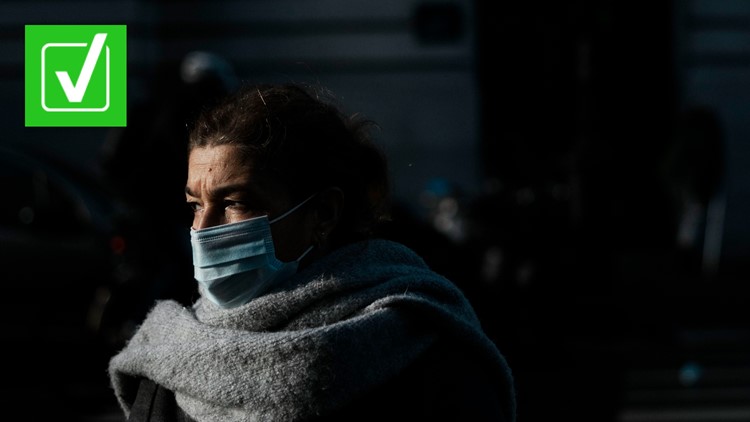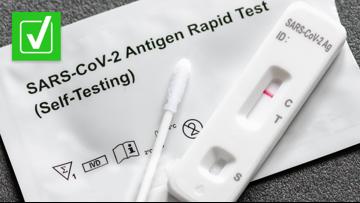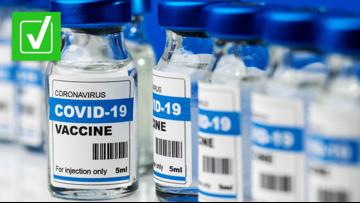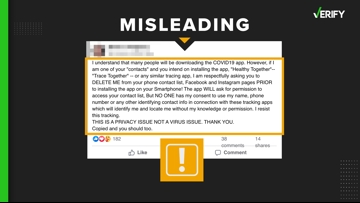On Nov. 24, the omicron variant of COVID-19 was first reported to the World Health Organization (WHO). Since then, the variant has been detected in more than 30 U.S. states and many details about the strain remain unknown, according to the Centers for Disease Control and Prevention (CDC).
The delta variant has been the dominant variant in the United States since summer 2021, long before the emergence of omicron. Since both variants have been detected in the United States, viewers have asked the VERIFY team if it’s possible to catch both variants at the same time.
THE QUESTION
Can you be infected with the delta and omicron coronavirus variants at the same time?
THE SOURCES
- Dr. Saralyn Mark, former senior medical advisor at the White House and current lead COVID-19 spokesperson for the American Medical Women’s Association
- Centers for Disease Control and Prevention (CDC)
- Study from Molecular Microbiology Laboratory, Feevale University
- Study from Pierre Louis Institute of Epidemiology and Public Health
- Medical microbiology textbook
THE ANSWER
Yes, you can be infected with both the delta and omicron variants of the virus that causes COVID-19 at the same time.
WHAT WE FOUND
Dr. Saralyn Mark, former senior medical advisor at the White House and current lead COVID-19 spokesperson for the American Medical Women’s Association, confirmed you can be infected with two variants of the virus that causes COVID-19 at the same time — and that includes the omicron and delta variants.
Mark said COVID-19 won’t necessarily be more severe in a person co-infected with both variants.
“Recall that some patients don't even know that they have COVID – they have asymptomatic or mild cases,” Mark said. “With the omicron variant and delta, we will have to closely monitor to see if this is the case.”
What does concern Mark, however, is the possibility of infection of one or both variants at the same time as infection of the flu virus.
“Additionally, you can be infected with influenza, too, causing even more damage to the lungs,” Mark said. “This would be a trifecta of viruses and could overwhelm our health systems, and increase morbidity and mortality.”
Researchers affiliated with the Molecular Microbiology Laboratory at Feevale University in Brazil published a study in January 2021 that presented evidence of co-infection of multiple variants of the virus that causes COVID-19.
This is not unique to the coronavirus. In fact, one way viruses can mutate is when two different strains co-infect the same host cell in a process called viral recombination, according to a medical microbiology textbook.
Two strains of the virus can also infect you without sharing the same cells. French researchers from the Pierre Louis Institute of Epidemiology and Public Health found in a study published July 2020 that two variants of the virus that causes COVID-19 existed separately in patients’ upper and lower respiratory tracts.
According to the Centers for Disease Control and Prevention (CDC), viruses constantly change through mutation, and not all variants can be harmful or consistent. “Sometimes they disappear,” the website said.
The CDC says the omicron variant has been detected in the majority of U.S. states, but the delta variant -- which is known to be more contagious than previous variants -- remains the predominant strain.
Vaccines remain the best way to reduce your risk of severe illness, hospitalization, and death from COVID-19, the CDC says.













